When your mind feels like it's spinning with endless thoughts and scenarios, finding the best apps for overthinking can be a game-changer for your mental wellness. I've been there – lying awake at 2 AM replaying conversations from three weeks ago or catastrophizing about tomorrow's meeting. The good news is that technology can actually help us break free from these exhausting thought loops, offering practical tools right in our pocket.
Why Apps Can Help Break the Overthinking Cycle
Before diving into specific recommendations, it's worth understanding why digital tools can be so effective for getting out of your head. Overthinking often happens when we're stuck in repetitive mental patterns, and apps provide structured interruptions to these cycles. They offer immediate accessibility – when your brain starts spiraling at midnight, you don't need to wait for a therapy appointment or meditation class.
The key is finding apps that don't just distract you temporarily but actually teach you skills to recognize and redirect overthinking when it happens. The best apps for overthinking combine evidence-based techniques like mindfulness, cognitive behavioral therapy principles, and breathing exercises in formats that feel accessible rather than overwhelming.
Declutter The Mind
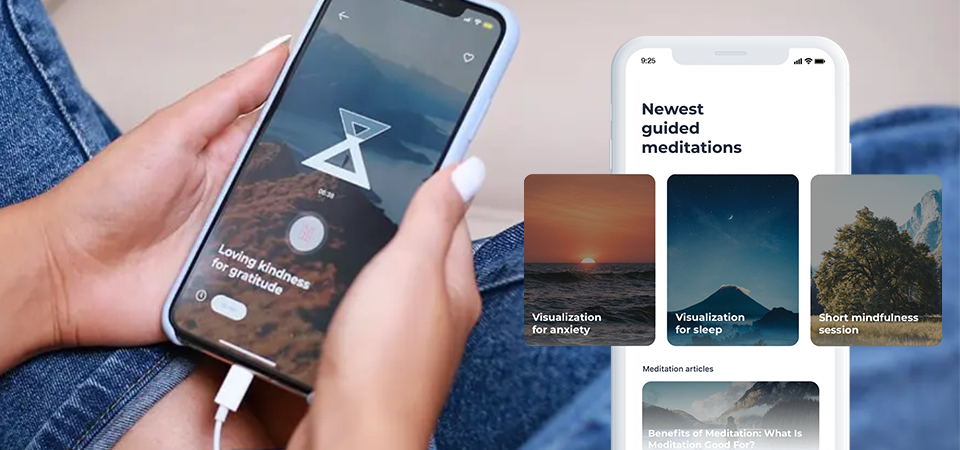
As someone who's tried countless meditation and wellness apps, Declutter The Mind stands out as the most comprehensive solution for overthinking minds. What sets it apart isn't just the extensive library of overthinking meditations – though those are incredibly effective – but the way it addresses overthinking from multiple angles.
Targeted Meditations for Racing Thoughts
The app offers specific guided sessions designed for different overthinking scenarios. Whether you're dealing with anxiety-driven thought loops, intrusive thoughts, or general mental chatter, there are meditations that speak directly to your experience. I particularly appreciate the sessions that don't try to stop your thoughts entirely – because let's be honest, that's impossible – but instead teach you how to change your relationship with them.
Breathing Tools That Actually Work
The breathing timers in Declutter The Mind are genuinely helpful for interrupting overthinking episodes. The 4-7-8 breathing timer has become my go-to when I catch myself spiraling. It's simple enough to use when you're already overwhelmed, but effective enough to create real physiological changes that calm your nervous system.
Progressive Skill Building
What I love most about this app is how it grows with you. The mindfulness courses start with basic concepts and gradually build more sophisticated awareness skills. You're not just getting temporary relief from overthinking – you're developing long-term resilience against it.
Journaling Apps for Thought Processing
While meditation apps address overthinking through mindfulness, journaling apps tackle it through structured thought processing. These tools help you get swirling thoughts out of your head and onto a page where you can examine them more objectively.
Day One
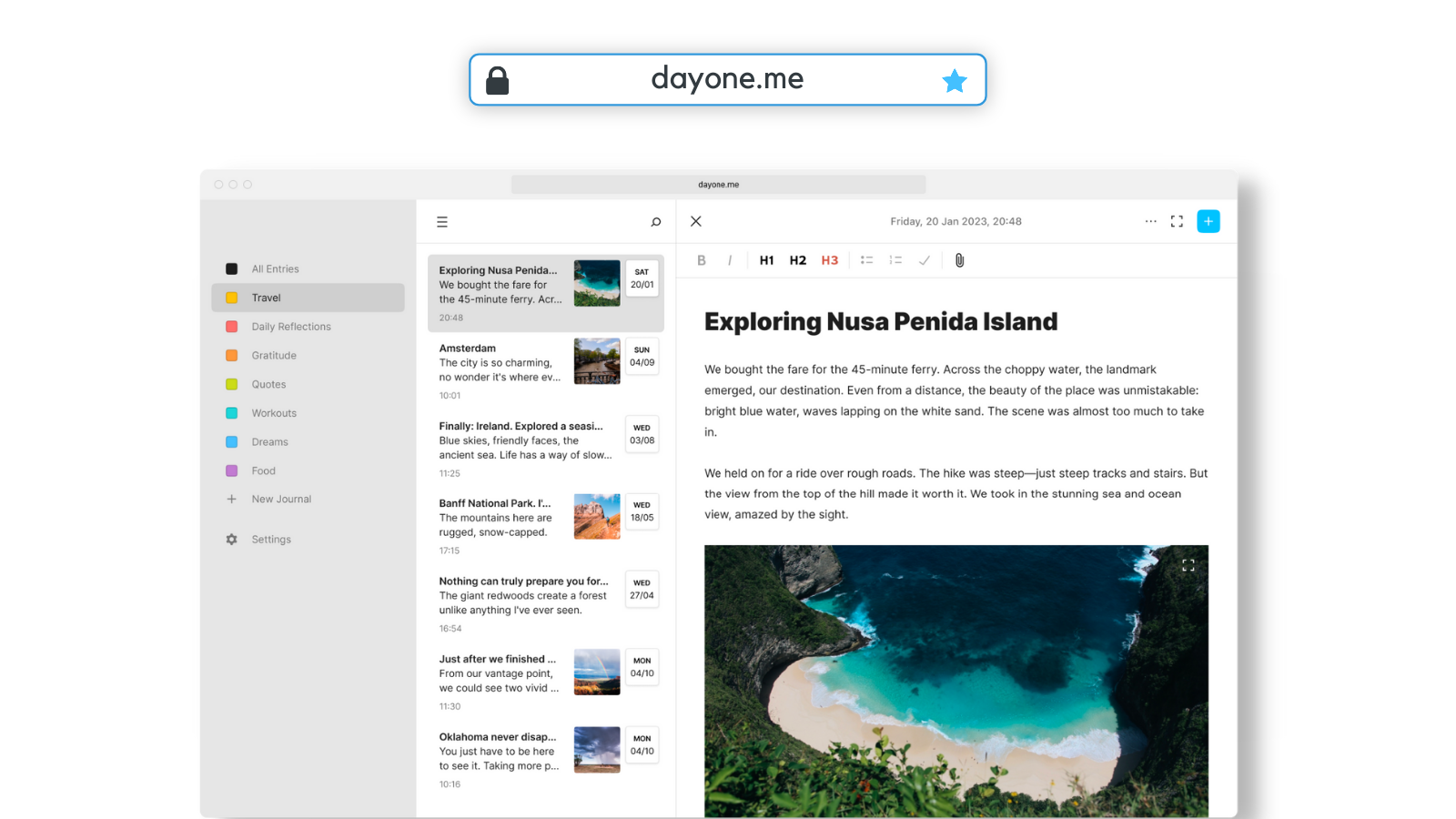
Day One excels at creating a private space for stream-of-consciousness writing. When you're overthinking, sometimes the best approach is to dump everything onto the page without editing or organizing. The app's clean interface and security features make it feel safe to explore even your most anxious thoughts. The ability to add photos, locations, and weather data helps create context around your mental state, which can reveal patterns in your overthinking triggers.
Journey Journal
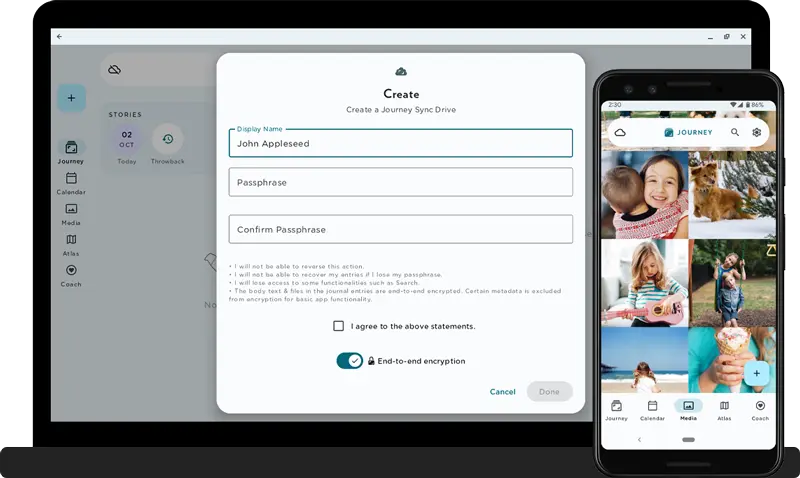
Journey offers more structured approaches to journaling that can be particularly helpful for chronic overthinkers. The app provides prompts and templates that guide you toward productive reflection rather than rumination. Features like mood tracking help you notice correlations between your emotional state and overthinking episodes.
Cognitive Behavioral Therapy (CBT) Apps
CBT-based apps are particularly effective for overthinking because they directly address the thought patterns that fuel mental spirals. These apps teach you to identify cognitive distortions and replace them with more balanced thinking.
MindShift
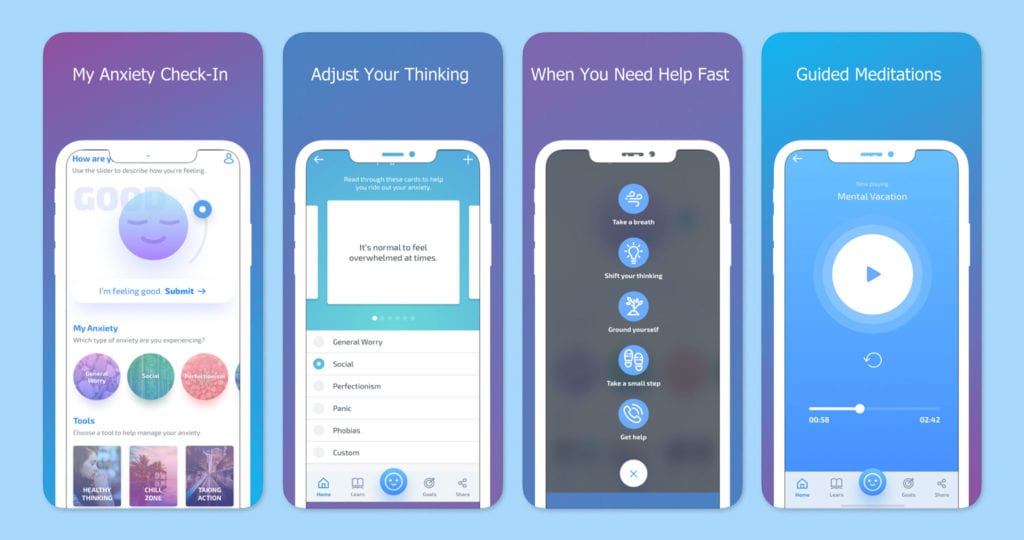
Developed by Anxiety Canada, MindShift focuses specifically on anxiety-driven overthinking. The app helps you identify worry patterns and provides tools for challenging catastrophic thoughts. What makes it particularly useful is its emphasis on action – rather than just thinking differently about your fears, it encourages small behavioral experiments that prove your anxious predictions wrong.
Sanvello
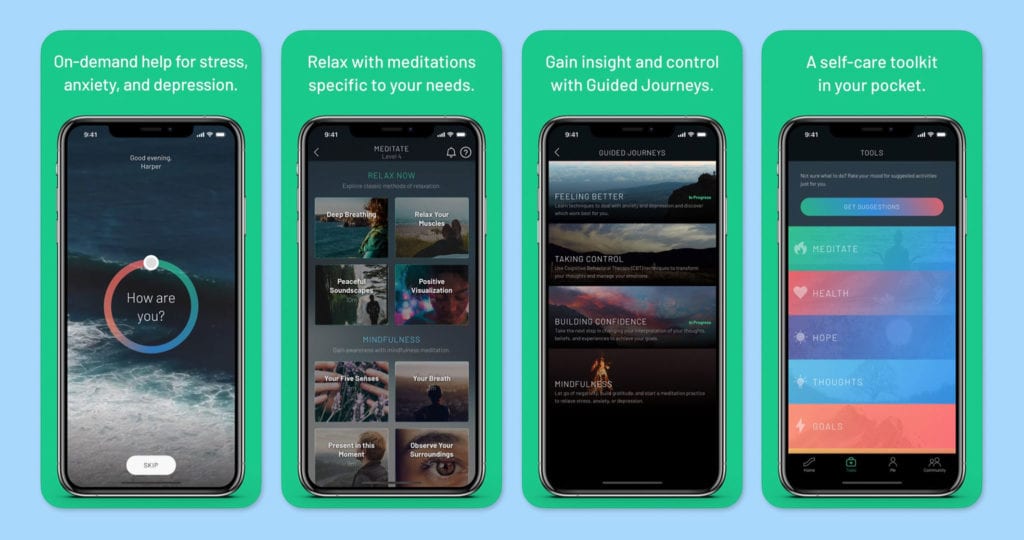
Sanvello combines mood tracking with CBT exercises, making it easier to see how your thinking patterns affect your emotional well-being. The app includes specific modules for racing thoughts and worry, with interactive exercises that feel more engaging than traditional CBT worksheets.
Focus and Productivity Apps
Sometimes overthinking stems from feeling overwhelmed by everything you need to do. Productivity apps can help by giving your mind clear, manageable tasks to focus on instead of spinning in worry loops.
Forest
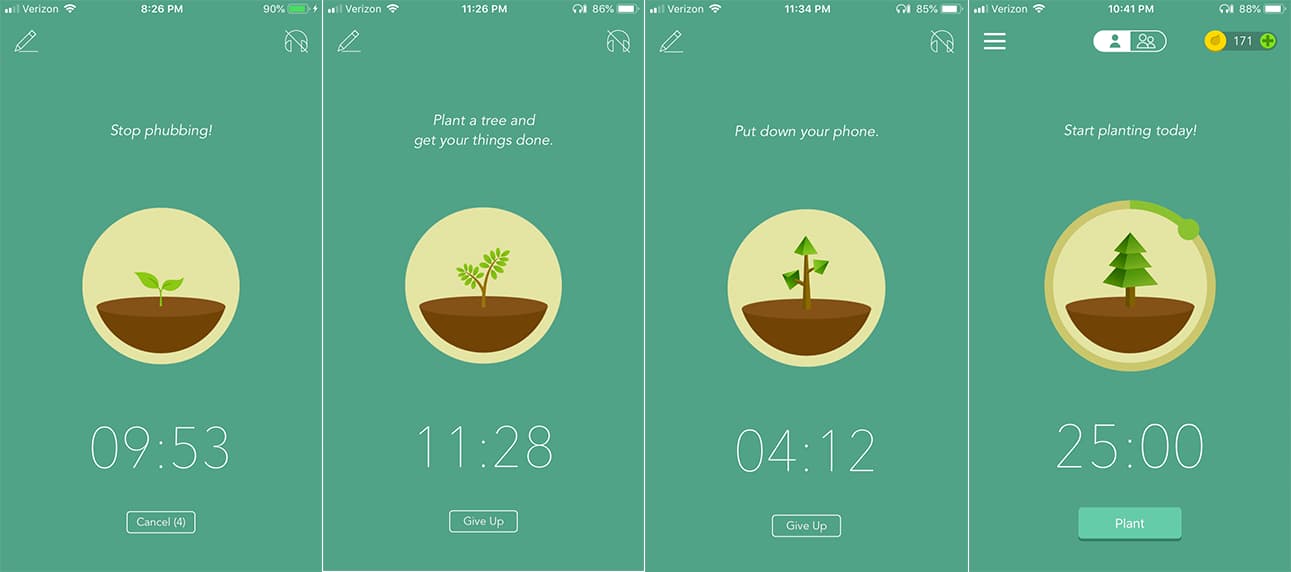
Forest uses gamification to help you stay present and focused. When you're prone to overthinking, the simple act of committing to 25 minutes of focused attention – whether on work, reading, or just breathing – can interrupt mental spirals. The visual metaphor of growing trees makes the practice feel rewarding rather than restrictive.
Todoist
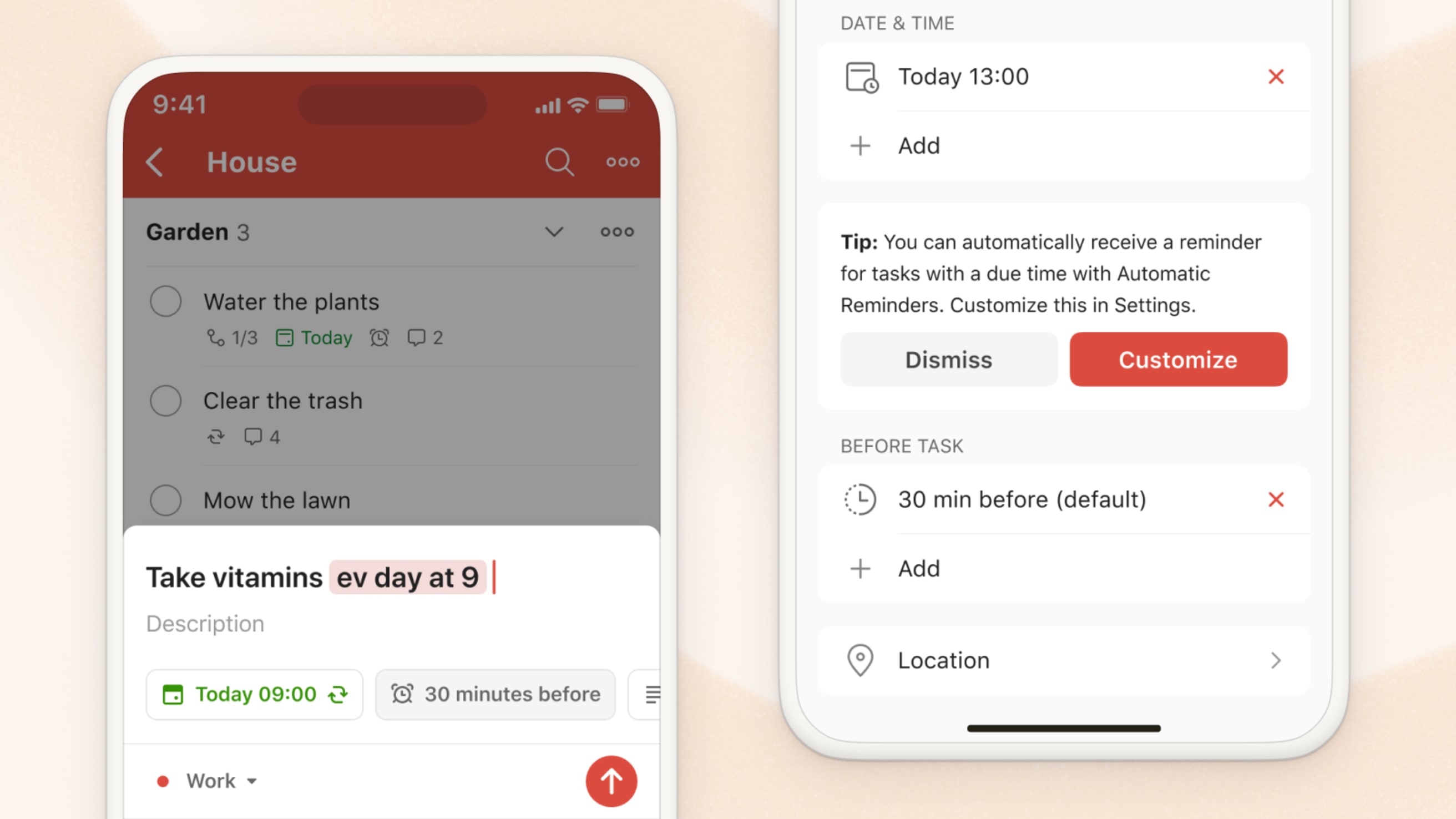
A good task management system can significantly reduce overthinking by getting worries and to-dos out of your mental RAM and into a trusted external system. Todoist's natural language processing and intelligent scheduling help you capture concerns quickly without getting bogged down in organizational complexity.
Sleep and Relaxation Apps
Nighttime is prime overthinking territory, making sleep-focused apps essential tools for many people. These apps address the specific challenge of quieting your mind when you're trying to rest.
Noisli
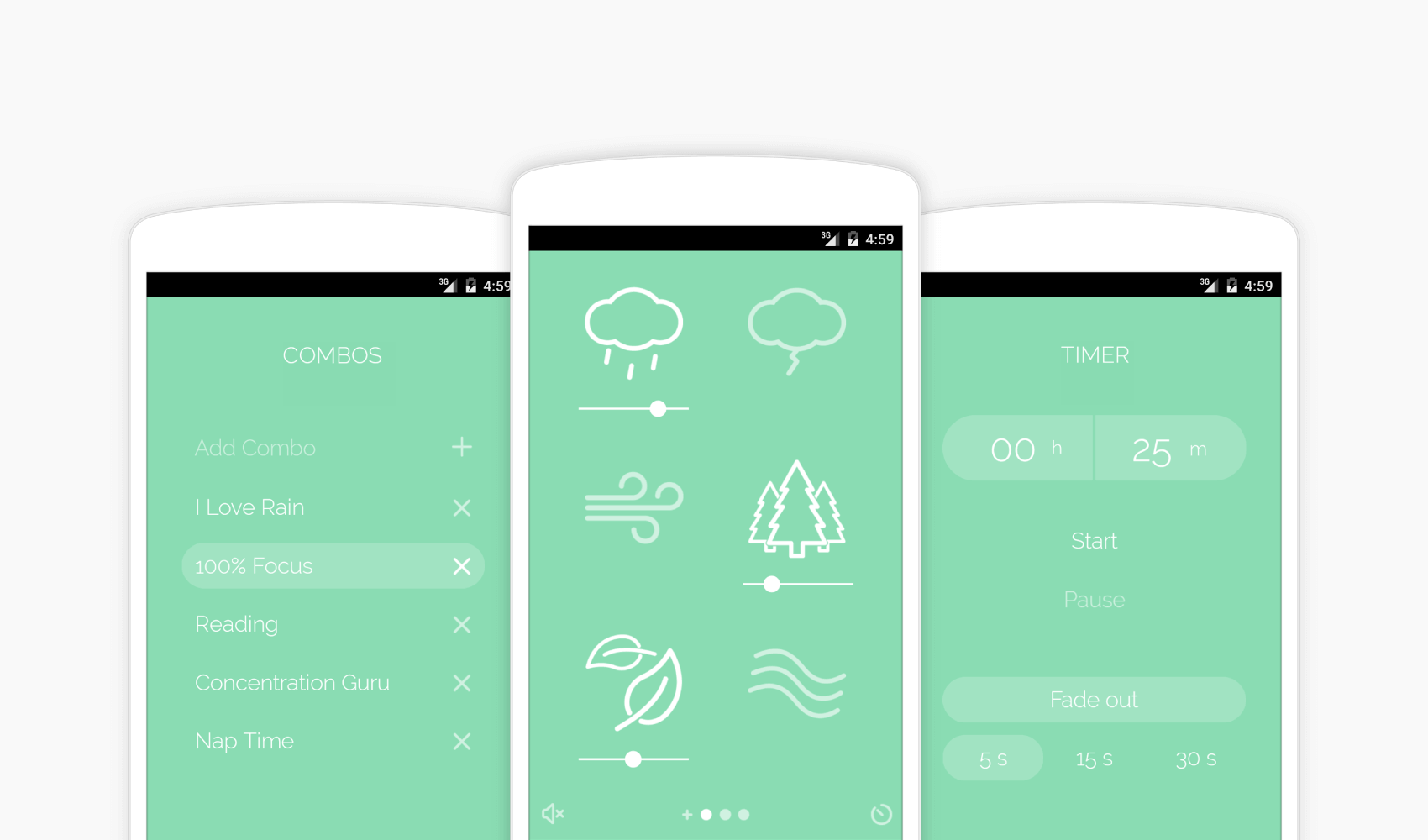
Background noise can be incredibly effective for overthinking minds because it gives your brain something neutral to focus on. Noisli offers a variety of ambient sounds that you can mix and match to create the perfect mental backdrop. The app works well both for sleep and for focused work sessions when you need to minimize mental distractions.
Sleepio
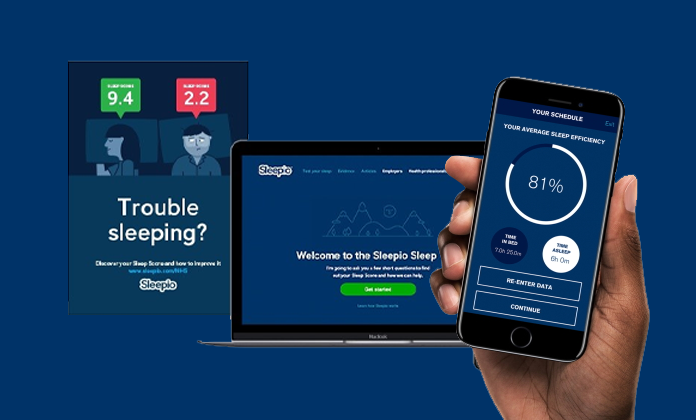
Based on cognitive behavioral therapy for insomnia (CBT-I), Sleepio addresses the specific thought patterns that keep overthinkers awake. The app teaches sleep hygiene techniques alongside mental strategies for quieting racing thoughts at bedtime.
Making Apps Work for Your Overthinking Pattern
The most important thing to remember about using apps for overthinking is that different approaches work for different people and situations. I've found that having a toolkit of 2-3 apps works better than trying to use just one. You might use Declutter The Mind's calming meditations for general mental chatter, a journaling app when you need to process specific worries, and a focus app when overwhelm is driving your overthinking.
Pay attention to when your overthinking typically happens. If it's mainly at night, prioritize apps with good sleep features. If it happens during work, focus on apps that offer quick, discreet interventions. The key is matching the tool to the moment when you're actually likely to use it.
Building Long-term Mental Resilience
While apps can provide immediate relief from overthinking episodes, the real goal is developing internal skills that make you less susceptible to mental spirals overall. This is where consistent practice with tools like Declutter The Mind becomes invaluable. The regular meditation practice you build through the app creates baseline mental stability that makes overthinking less likely to derail your day.
Remember that overcoming overthinking isn't about achieving perfect mental silence – it's about changing how you relate to your thoughts. The best apps for overthinking help you develop this new relationship through consistent, gentle practice rather than forcing dramatic changes.
Your overthinking mind isn't broken; it's just learned some unhelpful patterns. With the right tools and consistent practice, you can teach it new, more peaceful ways of operating. Start with one app that feels most relevant to your situation, give it a genuine try for at least a week, and notice what shifts. The goal isn't to eliminate all mental activity, but to find the calm confidence that comes from knowing you can handle whatever thoughts arise.







